Posted Jan. 16, 2015
Welcome to the newest online issue of Scotch Bonnet. This marine education newsletter also is available as a PDF — if you’re like me and want to keep a hard copy!
Thanks to Windy Arey-Kent, Kama Cannon, Pat Curley, Megan Ennes, Sara Hallas, John McCord, Beverly Owens, Dottie Shuman, Renee Strnad, Ethan Theuerkauf and Mare Timmons for their contributions to this issue.
Explore this issue of Scotch Bonnet. There are professional-development opportunities and family explorations for everyone. Try to take advantage of these wonderful conferences, workshops and more. Keep reading for those unique opportunities and ideas for educators. There is a lot going on in North Carolina and beyond!
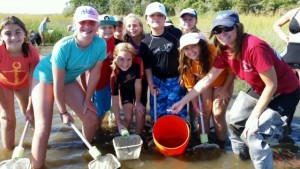 Kama Cannon (right, in red) and her Carolina Beach Elementary School marine science students studied physical oceanography on local barrier islands. Photo courtesy Kama Cannon. |
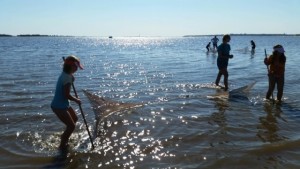 Cannon teaches her students using a place-based environmental education curriculum. Photo courtesy Kama Cannon. |
Kama Cannon and her Carolina Beach Elementary School marine science students recently studied physical oceanography, including ocean currents and wave processes, on boogie boards. Later, they explored the salt marsh and mud flats in the Ft. Fisher basin.
Students learned to use seine nets, collected and identified organisms, and developed an understanding of the local aquatic food web. Cannon’s cross-curricular Marine Science and Ocean Literacy Program provides an important place-based curriculum, encouraging students to explore STEM and social sciences right here on our barrier islands.
For more information on designing place-based environmental education curriculums, please contact Cannon at kama.cannon@nhcs.net.
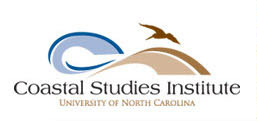 With the assistance of a grant from the Outer Banks Community Foundation, this January will see the commencement of a yearlong maritime heritage-themed speaker series on the Outer Banks. The program will celebrate the rich maritime heritage of northeastern North Carolina, with particular attention given to the wealth of shipwrecks found in our estuarine, coastal, and offshore waters.
With the assistance of a grant from the Outer Banks Community Foundation, this January will see the commencement of a yearlong maritime heritage-themed speaker series on the Outer Banks. The program will celebrate the rich maritime heritage of northeastern North Carolina, with particular attention given to the wealth of shipwrecks found in our estuarine, coastal, and offshore waters.
The result of a collaboration between the University of North Carolina Coastal Studies Institute (Maritime Heritage Program), East Carolina University (Program in Maritime Studies, Department of History), and the Graveyard of the Atlantic Museum (N.C. Department of Cultural Resources), the series will see scholars from East Carolina University, the National Park Service, the National Oceanic and Atmospheric Administration, and Florida’s Bureau of Archaeological Research travel to the area each month from January to May and September to December to give presentations regarding ongoing or recently completed maritime archaeological investigations.
The series, Our Underwater Heritage: Maritime Archaeology Projects in Coastal North Carolina, will highlight a diversity of topics in local underwater archaeology, from the reconstruction of pivotal battles, iconic shipwrecks, and critical industries of yesteryear, to the challenges involved in the study and preservation of our maritime history.
| Day, Date | Title | Presenter |
|---|---|---|
| Thursday, 1/8 | Dash at the Enemy: The Use of Modern Naval Theory to Examine the Battlefield at Elizabeth City, NC | Adam Parker, East Carolina University |
| Thursday, 2/5 | Matters of Steel: Examining the Deterioration of a World War II Merchant Shipwreck | Kara Fox, East Carolina University |
| Wednesday, 3/4 | Defending The East Coast: How Converted Vessels Helped to Win the Battle of the Atlantic | Will Sassorossi, East Carolina University |
| Thursday, 4/2 | Where Were the Whalers? The History and Archaeology of Whaling in North Carolina | Ryan Bradley, East Carolina University |
| Wednesday, 5/6 | More than meets the eye: artifacts from the sediments at site 31CR314, Queen Anne’s Revenge | Franklin Price, Florida Bureau of Archaeological Research |
| Thursday, 9/3 | Mirlo Revisited: New Insights in the Design, Armament, Sinking, and Rescue of British Tanker Mirlo during the First World War | John Bright, National Park Service |
| Thursday, 10/1 | Archaeological Findings from the 2013 Survey of the Soviet Tanker Ashkhabad | Joseph Hoyt, Monitor National Marine Sanctuary |
| Thursday, 11/5 | A Mobile Mystery: The History and Archaeology of the Corolla Wreck | Dan Brown, SCIAA |
| Thursday, 12/3 | Lighthouses, Confederate Earthworks and Plantation Shipwrecks: An Investigation of Coastal Heritage Sites at Risk or Overlooked in Hanover and Brunswick Counties, NC | Lynn Harris, East Carolina University |
Each presentation will be given twice a day at two venues. The 11 a.m. morning presentation will occur at the Graveyard of the Atlantic Museum in Hatteras Village, and a duplicate evening talk at 6 p.m. is scheduled for CSI on Roanoke Island.
In addition, the programs held at the UNC CSI campus will be streamed live and archived for future viewing at the UNC CSI’s YouTube channel at www.youtube.com/user/UNCCSI.
marex.uga.edu/sea_grant_internship/
The University of Georgia’s Marine Education Center and Aquarium offers annual postbaccalaureate internships in marine education. Interns train and work for 50 weeks at the Marine Education Center and Aquarium, near Savannah, Ga. Four interns will be selected for the period of Sept. 1, 2015, to Aug. 12, 2016. Salary is $8.14 per hour. On-site housing is required. Marine Education internship salaries are supported through Georgia Sea Grant.
Sea Grant Marine Education internships are designed for recent college graduates with a Bachelor of Science degree in biology who would like some teaching experience in marine science and coastal ecology. The internships provide a transitional period between college and permanent professional positions or graduate work. Interns live on site for 50 weeks in studio apartments provided by the UGA Marine Education Center and Aquarium. Meals are available without charge in the cafeteria whenever visiting groups are on campus.
The internship includes a variety of teaching opportunities: in the salt marsh and maritime forest, on the beaches of developed and pristine barrier islands of Tybee and Wassaw, on research vessels, and in well-equipped plankton, fish, and invertebrate labs. Interns begin to teach after a six- to eight-week training period. They also are responsible for maintaining touch-tank animals, working in the aquarium one to two Saturdays a month, and assisting staff in other areas of operation where necessary. During the winter months, each intern also completes an education project.
This internship offers outstanding professional training. When interns complete this program, they are ready to step into an educator position at an informal science facility — and several graduates from this internship program work in North Carolina EE centers! If you know of any recent college graduates in science who might be looking for education training, please share this information.
The application deadline is coming up soon — April 4. For application procedures and additional information, go to marex.uga.edu/sea_grant_internship/. Contact Maryellen Timmons at mare@uga.edu.
oceanexplorer.noaa.gov/okeanos/edu/welcome.html
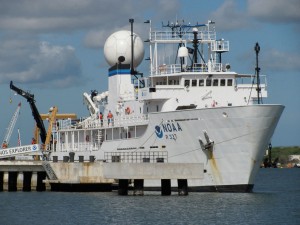
NOAA Ship Okeanos Explorer berthed in Pearl Harbor, Hawaii. Courtesy NOAA Office of Ocean Exploration and Research.
Join NOAA’s Office of Ocean Exploration and Research’s Connie Leverett as you are introduced to Volume 2 of the Okeanos Explorer Education Materials Collection: How Do We Explore? Learn how to use standards-based lessons and online resources that guide classroom discovery into the innovative exploration strategies, underwater robots and other ocean tools used onboard the NOAA ship Okeanos Explorer.
Topics include selecting sites for exploration in a largely unknown ocean, underwater mapping and exploring the water column. Deep ocean exploration with remotely operated vehicles and telepresence technology that enables participation during ocean exploration missions from shore in real time is also addressed.
This is the second part of a two-part professional development series. Registrants are expected to have taken Part One. If space is available, educators who have not yet participated in Part One are welcome to sign up for Part Two.
Registration is required and space is limited. Educators attending the full day will receive
Volume 2 of the Okeanos Explorer Education Materials Collection, How Do We Explore?, other resources and a NOAA Ocean Exploration Certificate of Participation. They also will be served continental breakfast and lunch. Educators who have completed both Why Do We Explore? (Part One) and How Do We Explore? (Part Two) will receive a $100 stipend.
Registration deadline is Jan. 30.
To register, visit reservations.ncaquariums.com/pineknollshores/Info.aspx?EventID=1010.
For questions and information, contact Pam Pittman at pamela.pittman@ncaquariums.com or at 252-247-4003, x257.
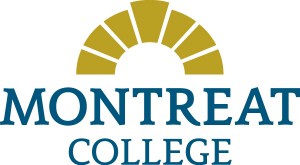 Montreat College will be offering the following free environmental education workshops during the spring semester:
Montreat College will be offering the following free environmental education workshops during the spring semester:
You must participate in both workshop sessions to receive EE certification credit. Workshops will be held in the basement of McAlister Gymnasium from 6 to 9 p.m.Contact Dottie Shuman at dshuman@montreat.edu or 828-669-8011, x3405, with questions or to sign up for workshops.
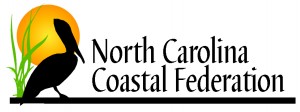 The N.C. Coastal Federation’s northeast office in Manteo has several events planned for the winter and spring.
The N.C. Coastal Federation’s northeast office in Manteo has several events planned for the winter and spring.
Rob Lamme, lobbyist with the N.C. Coastal Federation, will give updates and insights on where environmental issues rank with our current legislature. The event is free and open to all. Go to www.nccoast.org for more information.
An oyster roast for the coast! Join the federation for live music, fresh, local oysters and a view of Hatteras Harbor. Proceeds from the event will support the federation’s education and restoration programs. For more details or to buy a ticket, visit www.nccoast.org.
This event is designed to promote a healthy coastal environment and economy by exploring the economic and environmental returns on investing in N.C. oyster restoration, enhancement and production. Agenda and registration information can be found here.
The N.C. Coastal Federation will team up with North Carolina Sea Grant on this offshore, bottom-fishing expedition. We’ll be participating in a research project to test recompression equipment for the safe release of deep water fish species. More details to come.
www.ncsu.edu/sfta
The Sustainable Forestry Teachers’ Academy is a multiday residential program that focuses on the social, economic and environmental aspects of sustainable forestry. With the addition of a Piedmont location, there will be three academies this year.
The Academies are open only to classroom teachers. A simple online application process is required of those teachers wishing to participate. All North Carolina educators are encouraged to apply.
Acceptance will be dependent upon responses to application essay questions, and preference will be given to full-time classroom educators for grades K to 12, with teachers of environmental studies and sciences given first priority. Multiple teachers from the same school are encouraged to apply. Registration will remain open until April 10. Qualified applicants are accepted on a rolling basis, with all applicants notified of their status by April 17. CEU renewal credits (18 to 25 contact hours) will be awarded.
Registration for the Academies is now open. Visit www.ncsu.edu/sfta for the registration form link, sample schedules, and details. For more information, contact Renee Strnad at renee_strnad@ncsu.edu or 919-515-5518, or Susan Moore at susan_moore@ncsu.edu or 919-515-3184
www.thesciren.org
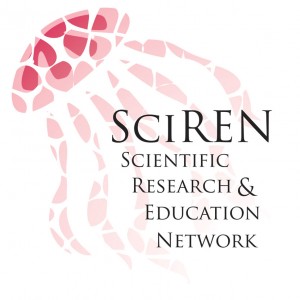 K-to-12 teachers and informal educators: Are you interested in meeting and engaging with local marine and environmental scientists about how you can use their research in your classroom? If your answer is “yes,” then plan to attend the third annual Scientific Research and Education Network, or SciREN, workshop!
K-to-12 teachers and informal educators: Are you interested in meeting and engaging with local marine and environmental scientists about how you can use their research in your classroom? If your answer is “yes,” then plan to attend the third annual Scientific Research and Education Network, or SciREN, workshop!
This event is organized by graduate students at the University of North Carolina at Chapel Hill’s Institute of Marine Sciences, Duke University Marine Laboratory, and East Carolina University. It will be hosted by the N.C. Aquarium at Pine Knoll Shores.
SciREN will bring educators together with more than 50 local scientists from various institutions and agencies. Researchers from UNC, Duke, ECU, North Carolina State University’s Center for Marine Sciences and Technology, N.C. Coastal Reserve and National Estuarine Research Reserve, the N.C. Maritime Museum, and many other organizations will present their research.
Whether you attended last year or are new to SciREN, consider registering for this networking event www.thesciren.org/educators/edu-registration/. Scientists provide lesson plans that incorporate teaching standards, as well as provide materials that are based on current research.
This FREE event is scheduled for Feb. 12 from 5:30 to 8:30 p.m. at the N.C. Aquarium at Pine Knoll Shores. Doors open at 5 p.m. Register by Feb. 5 to be entered into a raffle for some great door prizes!
Register and find more event information, including overnight accommodations, at www.thesciren.org.
www.thesciencehouse.org/satellite-offices/cmast-satellite-office.php
![]() Recently, The Science House, based at North Carolina State University’s Center for Marine Sciences and Technology, received a grant from the Burroughs Wellcome Fund Student Science Enrichment Program. This grant, entitled Coastal Inquirers, will target incoming sixth graders from schools in Carteret, Pamlico and Onslow counties.
Recently, The Science House, based at North Carolina State University’s Center for Marine Sciences and Technology, received a grant from the Burroughs Wellcome Fund Student Science Enrichment Program. This grant, entitled Coastal Inquirers, will target incoming sixth graders from schools in Carteret, Pamlico and Onslow counties.
During the summer, rising sixth graders will be introduced to the process of developing, designing and implementing a project. Students will be trained in project planning and leadership while learning about STEM-related issues in their own communities.
During the school year, middle schools will host Coastal Inquirers clubs that will meet after school and on weekends. Students will engage in a variety of rigorous student-centered, hands-on and project-based STEM activities. These activities will be developed based on the recommendations of the staff, curriculum of the school, available community resources and, most importantly, the interests of the students.
The students will engage in citizen science and service-learning projects. In addition, they will work with area scientists and compete in STEM competitions, including the Science and Engineering Fair, the N.C. Science Olympiad, and the Blue Heron Bowl. Recruitment and training of lead teachers will begin in February.
www.thesciencehouse.org/satellite-offices/cmast-satellite-office.php
 The Science House, North Carolina Science Teachers Association, Environmental Educators of North Carolina, and the Mid-Atlantic Marine Education Association have teamed up to provide a series of mini-conferences that will take place on Saturday mornings from 9 a.m. to 1 p.m.
The Science House, North Carolina Science Teachers Association, Environmental Educators of North Carolina, and the Mid-Atlantic Marine Education Association have teamed up to provide a series of mini-conferences that will take place on Saturday mornings from 9 a.m. to 1 p.m.
The mini-conferences are intended to provide opportunities for networking, to share information about coastal programs and resources, and to provide coastal teachers with cost-effective professional development opportunities. The workshops are eligible for CEUs and EE Certification Credit.
The following programs are scheduled:
Feb. 28
April 25
The Science House and the N.C. Marine Science and Education Partnership are seeking applications from middle-grade science teachers in Onslow, Carteret, Pamlico, Jones and Craven counties for the 2015 Coastal Connections Math and Science Partnership Grant.
Twenty-five teachers will get to partner with researchers at NC State’s Center for Marine Sciences and Technology to create integrated instructional units based on coastal research.
What you will do
What you will receive
For more information or to register, go to . Questions? Contact Pat Curley at pwcurley@ncsu.edu.
sites.google.com/site/msepcompetition/home
 The N.C. Marine Science and Education Partnership, or MSEP, is sponsoring its second annual Marine Science Competition.
The N.C. Marine Science and Education Partnership, or MSEP, is sponsoring its second annual Marine Science Competition.
Participants will have to produce a two-minute presentation that addresses an important coastal issue. The contest has an open-entry submission phase, followed by a judging phase. It culminates in an awards ceremony to announce the winner at the N.C. Aquarium at Pine Knoll Shores on May 28.
Sponsored by MSEP, this marine science competition is open to full-time, registered students between the ages of 13 and 18. Competitors must be enrolled in a private or public middle or high school in North Carolina. Registration began Jan. 1.
Students may compete individually or as part of a team of up to three students. Entries may be submitted beginning Feb. 2. The final date for submitting entries is March 31. Contest finalists will be named the week of May 11.
For information about the competition, visit sites.google.com/site/msepcompetition/home. Questions may be directed to Pat Curley at pwcurley@ncsu.edu.
The N.C. Aquarium at Fort Fisher presents Sea Turtle Exploration, a curriculum to help educators engage students in the fundamentals of STEAM through ready-to-use, standards-based lesson plans and sea turtles. Join us on Saturday, Feb. 7, for a hands-on teacher workshop guiding you through our new curriculum and website.
In addition to the curriculum, you will learn about more resources, such as weekly blog posts that will be made during the school year. Topics will include species profiles, aquarium staff spotlights, behind-the-scenes videos, new lesson plans and more. Even follow the growth of the N.C. Aquarium hatchling sea turtles by visiting the blog each week!
Aligned with the new Common Core standards, your class will be able to “adopt” a turtle and learn about its care and growth. By adopting our sea turtle, you will receive weekly updates with information including the turtle’s current weight and length. Each class also will receive a certificate of participation.
By the end of the workshop, you will be familiar with the website and curriculum and how to implement the lessons in your own classroom. The workshop will include a behind-the-scenes tour to meet one of our sea turtles. Please pack a waste-free lunch, as there will not be food available on site. This workshop will count toward N.C. Environmental Education Certification and consists of six contact hours that may count toward CEUs for teachers.
To register for the Fort Fisher workshop, go to reservations.ncaquariums.com/fortfisher/Info.aspx?EventID=20.
If you can’t make it to the Fort Fisher Aquarium, maybe you can attend a shorter workshop at the N.C. Aquarium on Roanoke Island on Saturday, March 7.
To register for the Roanoke Island workshop, go to reservations.ncaquariums.com/roanokeisland/Info.aspx?EventID=29.
For questions about either workshop, contact Megan Ennes at megan.ennes@ncaquariums.com or 910-458-8257, x234.
 The Discovery Place in Charlotte is holding several events related to sea turtles this spring and summer.
The Discovery Place in Charlotte is holding several events related to sea turtles this spring and summer.
Explore the natural history of sea turtles through several hands-on activities and learn how you can follow the growth of the N.C. Aquarium hatchling sea turtles by visiting the facility’s blog each week. Aligned with the new Common Core standards, the Sea Turtle Exploration curriculum provides hands-on activities and allows students to “adopt” a turtle and learn about its care and growth. Each class will also receive a certificate of participation. NCEE Criteria III credits are available.
Travel to Bald Head Island to discover the biology, ecology and natural history of sea turtles. Examine sea turtle anatomy and nesting habitats. Explore the unique environment of marshes and maritime forests on the island. Learn about current research and participate in conservation monitoring activities. NC EE Criteria II and III credits are available.
To register, visit educationstudio.org. For additional information, contact Beverly Owens at beverlyo@discoveryplace.org.
There are many conferences scheduled for this year. Join your fellow marine educators and beach lovers at one — or more — of these great events.
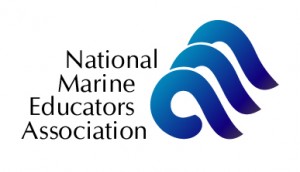 |
|
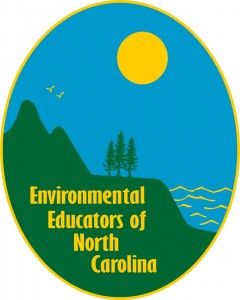 |
|
 |
|
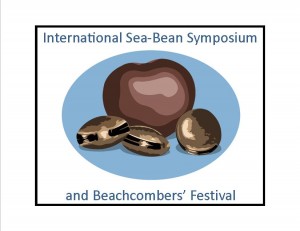 |
|
 |
|
If you ever have information to share with other marine educators, please don’t hesitate to send it my way for inclusion in a future issue of the Scotch Bonnet. Let me know what you’re hearing from the sea! Please share this website or newsletter with others — and share my email address with anyone who wants to receive a message when each Scotch Bonnet is available online. Thanks for all you do for students and for other educators!
My contact information is: North Carolina Sea Grant, PO Box 699, Manteo, NC 27954; phone: 252-475-5486; fax: 252-475-3545; email terrikh@csi.northcarolina.edu.
